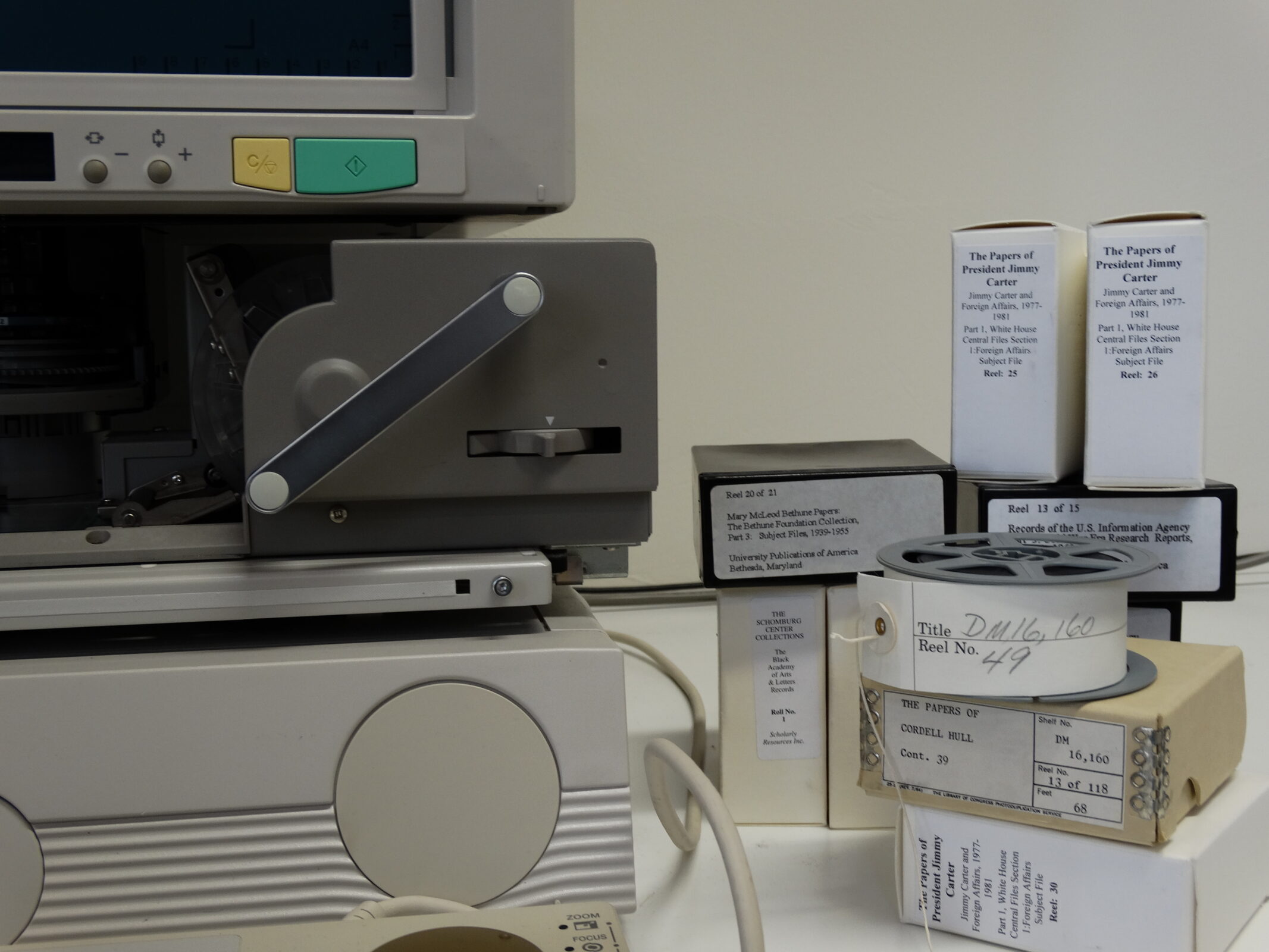Archives of the Federal Writers’ Project
The Federal Writers’ Project was one of the most active programs established by FDR’s New Deal administration. The program was part of the Work Projects Administration. The Federal Writers’ Project aimed to support journalists, writers, and scholars. The program provided literary training to practice art, scholarship and literature. They wrote about life in the United States during the Depression giving a description of elements such as sports, people’s hobbies, business, health care, and urban life. Its 35 reels of microfilm are classified alphabetically by state and run from 1933 until 1943. A finding aid is available that is indexed by reel content, supplemented by an author index, and a subject index of activities.
FINDING AID: Archives of the Federal Writers’ Project
Archives of the Work Projects Administration and Predecessors, 1933-1946
The Work Projects Administration was the agency responsible for the work relief program of the New Deal Administration. It set out to put to work millions of Americans who were unemployed as a result of the Stock Market crash of October 1929 and the economic depression that followed. This collection is split into two parts. The first one, consisting of six reels of microfilm deals with the final reports of the state programs. The second part, reels seven to thirteen, features the individual project reports of the Federal Music Program, the Federal Art Program, the Federal Crafts Program, the Museum and Visual Aids Program, the Federal Theatre Program and the Federal Writers’ Program.
FINDING AID: Archives of the Work Projects Administration and Predecessors, 1933-1946 part 1
FINDING AID: Archives of the Work Projects Administration and Predecessors, 1933-1946 part 2
Native Americans and the New Deal: The Office Files of John Collier, 1933-1945
John Collier was FDR’s commissioner of Indian Affairs. He called for a restoration of Indian culture and heritage, addressed communal land base and land purchase issues, and regenerated tribal self-government. These desires were formulated into the Indian New Deal, providing funding for the building of new schools and hospitals, food aid, training, and construction to renew Indian political and social structures. Collier strove to close the gap between federal paternalism and independence. This collection highlights the activities of John Collier in 18 reels of microfilm. In combination with the Native Americans Reference Collection : Documents Collected by the Office of Indian Affairs, Part II, 1901-1948 it offers great insight in the history of Native Americans.
FINDING AID: Native Americans and the New Deal: The Office Files of John Collier, 1933-1945
New Deal (Part of Columbia University Oral History Collection)
This collection of microfiches consists of 250 interviews with numerous people who played an important role in the development and execution of the New Deal. Among the interviewed are Henry Wallace, Frank Bane, and Francis Perkins (alphabetical listing).
New Deal Agencies and Black America
The “Black Cabinet” is an informal term applied to a network of black advisors and administrators of the New Deal in the 1930s. The members of the “Black Cabinet” met on a regular basis in the 1930s to discuss issues concerning blacks. The cabinet consisted of two groups, the first of those called the Interdepartmental Group Concerned with the Special Problems of Negroes, set up in 1934. The second group was known as the Federal Council on Negro Affairs. It met from 1937 to 1939. Materials in this collection of 25 reels pertain primarily to the years between 1933 and 1940. Almost every agency and department relative to racial matters and to the lives of black people in the 1930s has been included. Within the many standard reports, general correspondence or press releases one can discover important primary material that offers insight into the black experience and the relationship of the federal government to African Americans during the 1930s.
FINDING AID: New Deal Agencies and Black America
New Deal Economic Policies: FDR and the Congress, 1933-1938
This collection reveals how Congress conducted research on the New Deal proposals and criticized them. The 300 files are divided over six subjects: agriculture, banks and financial politics, employment and social welfare, industrial recovery, trade, and Franklin Roosevelt’s comments on the matters. The collection contains primary research materials on the Roosevelt Administration and Congress from the Agricultural Emergency Act of 1933 to the last act of the New deal, the Fair Labor Standards Act of 1938. The collection of approximately 400 microfiches includes 308 carefully selected congressional committee reports, documents, prints, hearings, and presidential messages to Congress published during the 73rd to 75th Congresses.
FINDING AID: New Deal Economic Policies: FDR and the Congress, 1933-1938



